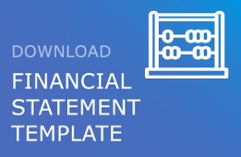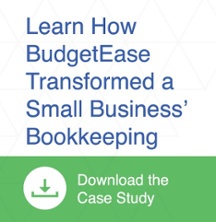 It is crucial to for business owners to enter all of their transactions into their accounting system. The process of reconciling is important to ensure you have enough cash available to cover costs and are able to fund continued growth. However, business owners often determine their cash balance by checking what the bank shows online in the accounts at a point in time. However, you cannot accurately forecast cash flow unless you match and verify activity in the bank statement to QuickBooks or whichever accounting system you use.
It is crucial to for business owners to enter all of their transactions into their accounting system. The process of reconciling is important to ensure you have enough cash available to cover costs and are able to fund continued growth. However, business owners often determine their cash balance by checking what the bank shows online in the accounts at a point in time. However, you cannot accurately forecast cash flow unless you match and verify activity in the bank statement to QuickBooks or whichever accounting system you use.
What happens if you don’t reconcile? Often, we see balances in QuickBooks that are substantially different from the bank when we review a new client’s financial records. Reconciliation eliminates accidental double entries and allows you to easily see uncashed checks.
Let’s face it: As small business owners, we are busy, things change, and we don’t remember exactly what happened because there are so many transactions. Making sure your cash balance is accurate falls through the cracks or you know that the balance is wrong but don’t know how to fix it.
Common Mistakes
Here are a couple examples of mistakes we see in companies’ QBs bank balances that accumulate for years:
- You are taking a deposit to the bank (that you entered in QBs) when you receive another check that you add to the deposit. When the deposit shows up in the bank transactions, you don’t see the amount in QBs, so you enter it. In effect you have overstated your bank balance by double entering this deposit for two different amounts. You have probably also overstated your income.
- You write a check to a charity, enter the check in QBs, and then decide not to donate. If you don’t remember to delete this transaction in QBs, you have understated your bank balance and overstated your expenses.
Results of NOT Reconciling
Not having accurate cash balances can lead to several unexpected outcomes:
1. You add unnecessary stress to your life
Incorrect balances or discrepancies in transactions can lead to unexpected cash shortfalls, bounced checks and overdraft fees. Completing bank reconciliations monthly can save you time and relieve stress.
2. You can’t accurately plan for future growth
When looking ahead at future growth, you need to have an accurate record of the past.
3. You leave yourself vulnerable to fraud
Regularly reviewing and cross-referencing the bank accounts to QBs can help you find unauthorized withdrawals, stolen checks or transactions posted in error much sooner. There are even tools the bank can provide to help you prevent fraudulent or erroneous items from posting and clearing the account.
4. Red flags if you are audited
If you are subject to audits, the auditors want to see your bank reconciliations. Many accountants want to see them, too. Potential audits require very granular procedures and testing across all your accounting records.
5. You won’t have accurate financial information
Unaccounted expenses or income can lead to incorrect tax calculations since these items flow through to your P&L Statement and Balance Sheet. Make sure your chart of accounts accurately reflects the activity in your business by reconciling your bank account activity.
BudgetEase's Recommendation
We recommend performing bank reconciliations on all your bank statements and credit card accounts at least once a month so the information is still fresh in your mind. After the reconciliation, look at the uncleared items. Investigate amounts that look wrong. Now is the time to make sure there are not any duplicate or incorrect entries. Make the adjustment.
You can delete duplicate entries until you have sent your records to your accountant. If your taxes are done and there are mistakes, ask your accountant what needs to be done to make your financial information agree with the bank.
A review of your accounts can prevent unforeseen losses and fraud, as well as set yourself up for better planning and forecasting.
Comparing your bank reconciliations against your P&L statement and your cash flow statements can provide valuable insight to prepare for growth spurts and lean times. If you need help determining what your chart of accounts should look like, assessing the accuracy of your bank reconciliation, or determining if YOU are profitable, we can help! We make QuickBooks work for you!







